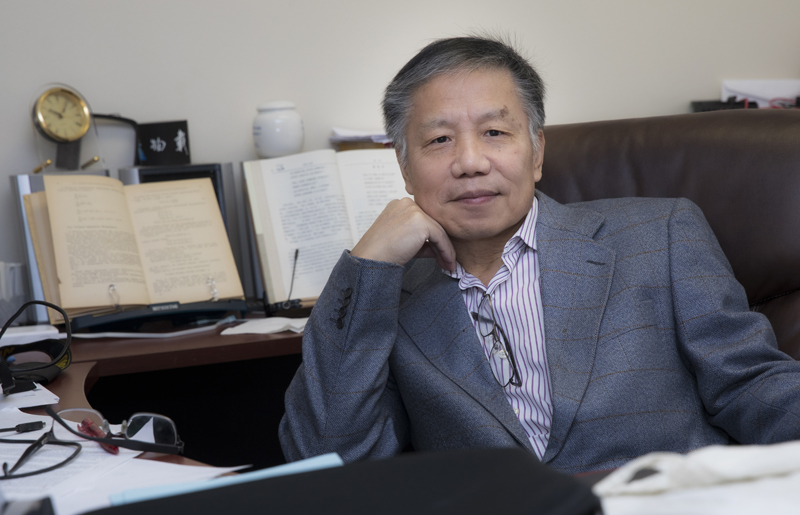Economics professor assists in Nobel Prize-winning research
Zili Yang collaborated with Nobel laureate William Nordhaus on climate-change models

Binghamton University economist Zili Yang was quick to reach out to William Nordhaus after learning that the Yale professor had won the 2018 Nobel Memorial Prize in Economic Sciences.
“I got the news when I woke up,” Yang said about the October announcement. “I sent him an email right away. I knew he’d be very busy so I didn’t want to bother him any further.”
But Yang wasn’t a just well-wisher honoring one of the leading minds in the field. As a Yale University doctoral student in the early 1990s, Yang worked with Nordhaus on climate-change research that laid the foundation for the Nobel Prize. Nordhaus was honored by the Nobel committee “for integrating climate change into long-run macroeconomic analysis.”
“I said: ‘Well-deserved and overdue. I’m proud to be your student,’” Yang said about his email. “That was basically the language.”
Yang called the award received by his doctoral advisor “an expected surprise.”
“Nordhaus is a top economist,” he said. “He has been well-recognized over the years. His research covers a broad area.”
Yang started his doctoral work at Yale in 1987 after receiving his master’s degree in management science from Tianjin University in China in 1985.
Nordhaus, a Yale faculty member since 1967, had examined economic approaches to global warming for more than a decade when Yang joined his research team. But Yang admitted that he had no idea then that the work would prove so long-lasting.
“At the time, I didn’t feel much,” he recalled with a laugh. “It was just regular (research assistant) work!”
By 1992, Nordhaus developed the Dynamic Integrated Climate-Economy (DICE) model, a computer-based integrated assessment model that describes the global interplay between the climate, energy usage and the economy.
Yang received his doctorate in 1993 and became a collaborator with Nordhaus. In 1996, the pair produced a paper that expanded DICE into the Regional Integrated model of Climate and the Economy (RICE). While DICE served as a single global model, RICE divided the world into 12 regions. The models have been used for the past 30 years by researchers all over the world.
“DICE/RICE isn’t only a paper. It is also a set of programming codes,” Yang said, calling it “a practical tool” for researchers. “Everyone wanted to use it. We released the codes without any patent or copyright. It’s public information that anyone can use.”
After Yale, Yang served as a research associate at Massachusetts Institute of Technology and as an assistant professor in the Department of Energy, Environmental and Mineral Economics at Penn State University. He joined the Binghamton University faculty in fall 2002 and saw the release of his book, Strategic Bargaining and Cooperation in Greenhouse Gas Mitigations: An Integrated Assessment Modeling Approach, in 2008 by MIT Press. He is now working on a second book with Cambridge University Press.
Yang is also still collaborating with his mentor. He and Nordhaus have started a three-year project to update and upgrade DICE/RICE “to make it stand for the next decade,” Yang said.
The pair primarily works via email, although they see each occasionally.
“I’m sure that there aren’t many advisor-student research relationships that have lasted this long,” Yang said. “He’s been so supportive through all of the stages in my career. If someone still wants to work with you on technologically detailed (research), there must be something complementary and mutually helpful there.”
Yang is impressed that Nordhaus – now the Sterling Professor of Economics at Yale – is still a force in the economics field at age 77.
“Most people his age are no longer doing any kind of hands-on work themselves,” he said. “He’s still doing things on his own – and working hard.”
Yang, whose name is mentioned in the Nobel report detailing the work of Nordhaus, said he is pleased to have played a role in the research.
“I’m glad that this part of my work was recognized,” he said. “The 1996 Nordhaus-Yang paper was the most important (publication) for the evolvement of DICE/RICE. I can say that I co-authored a Nobel Prize-winning paper.”
